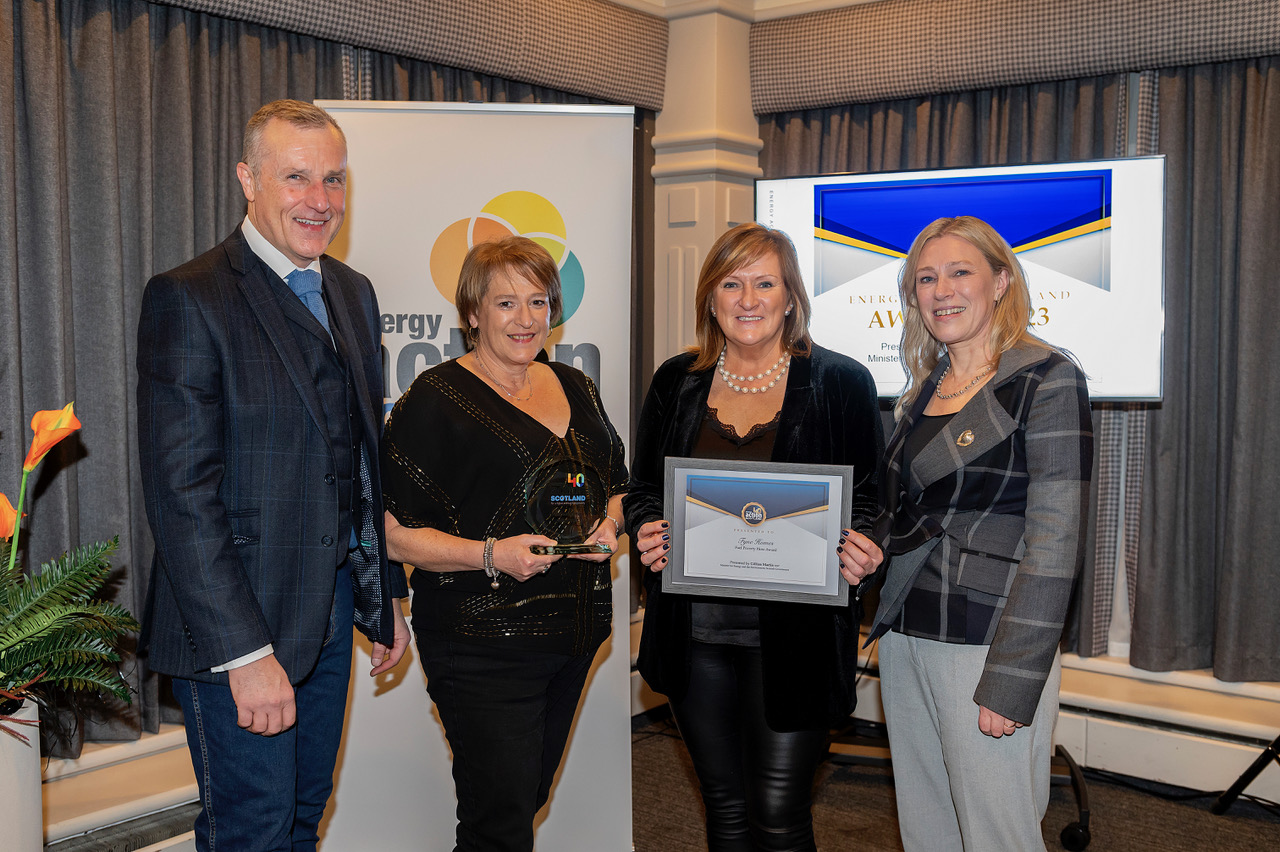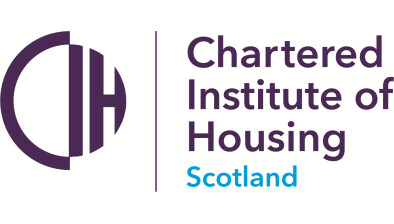Fyne Homes windfarm recognised for tackling fuel poverty in Argyll

Fyne Homes' Karen Hilton and Janet McAlister receive their award from Energy Action Scotland chief executive Frazer Scott and energy minister Gillian Martin MSP
The innovative use of wind farm profits has earned Fyne Homes a fuel poverty award.
The housing association, which is based on the Isle of Bute and manages 1,600 homes across Argyll, was honoured in the ‘Outstanding Tenant Support’ category at Energy Action Scotland’s annual conference.
Fyne Homes chose to use the £118,000 profits from its recently completed windfarm at Glenbarr to support tenants with their energy costs.
Energy Action Scotland chief executive, Frazer Scott, said: “It is a recognition from Fyne just how badly this cost-of-living crisis is hitting their tenants that they chose to use this money in this way. In our recent research into fuel poverty by area Argyll & Bute registered as 50% of all homes living in fuel poverty well above the average, so this money would have been well received.”
Fyne Homes provides tenants with energy efficiency advice, assisted tenants with issues relating to energy companies and provides top-up vouchers and debt clearance grants through its FyneHEAT project.
It also holds regular tenant drop-ins offering energy and benefit advice and making welfare calls to its more vulnerable tenants, both of these as well as day-to-day interactions with staff highlighted that tenants were experiencing increased hardship over the winter period.
Energy Action Scotland’s annual awards are an opportunity for the national organisation – which campaigns to raise awareness of fuel poverty and lobby the Scottish Government to make positive changes – to recognise those across Scotland that have made significant impacts in combating fuel poverty.
Latest data shows that 37% of Scottish households live in fuel poverty with figures going as high as 51% in the Western Isles.
According to the Scottish Government fuel poverty is defined as more than 10% of net income after housing costs being spent on energy.
“It’s the holistic way Fyne offers tenants, spread over a wide geographic area, energy support, as well as the payments that make them worthy of an award,” added Frazer.







